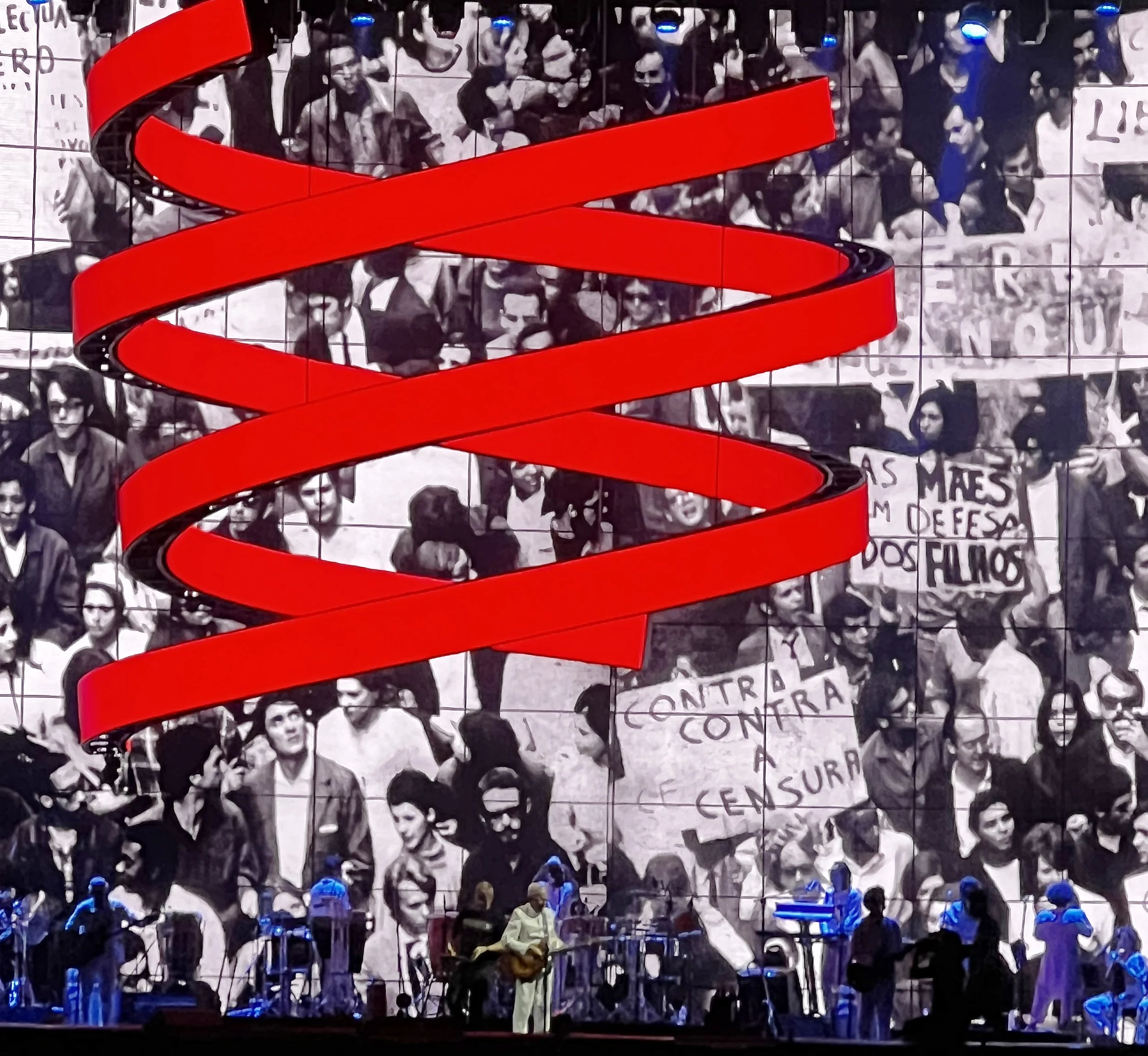I became obsessed with the song Cálice after hearing Gilberto Gil and Chico Buarque perform it live in Rio this June, a protest anthem so powerful it once had to be disguised just to slip past the dictatorship’s censors. On the surface, Cálice means “chalice,” a biblical image of suffering. But in Portuguese it is a homophone for cale-se or, “shut up,” the very order the regime used to silence dissent. That double meaning turned the song into a cry against repression, sung at great personal risk. (Gil himself was imprisoned at the time for daring to challenge the regime through music.)
When Chico walked onstage to join Gil, the crowd erupted in a wave of applause and emotion that left me in tears before a single lyric was sung. The music alone carried the weight of its history. And once you know the story behind it, the impact deepens. The repeated plea, “Pai, afasta de mim esse cálice” (“Father, take this chalice away from me”) echoes the words of Christ, but here it is a cry against authoritarian forces that sought to silence an entire people. To witness these two legends perform it together was a profound privilege. Brazilian music doesn’t just entertain, it remembers, resists and bears witness.
That’s why hearing Paz Lenchantin’s new song Hang Tough echo its melody far too closely, feels like more than mere “inspiration.” It feels like a theft. With so many Pixies fans in Brazil, it hasn’t gone unnoticed. Cálice isn’t just a song, it’s a memory of the profound resistance and the art of saying what was not meant to be spoken aloud. To strip it of its context and repackage it without acknowledgement is careless at best, and deeply disrespectful at worst.
Having grown up with a father who always encouraged me to play devil’s advocate, it’s perhaps inevitable that I’ve become a passionate defender of Brazil, its music, culture, and most importantly, its people. This country has shown me a depth of courage and creativity I can’t help but respect and fight for.
When I asked my wife to listen this morning, she immediately said, “it’s Cálice,” recognizing the melody as one of Brazil’s most beloved anthems. How ironic that it was “appropriated” by someone named Paz, which means “peace” in Portuguese. But there will be no peace here until the debt is acknowledged and the respect restored.

